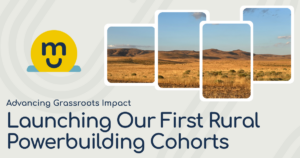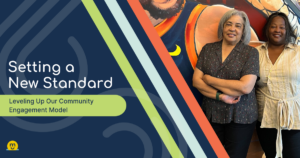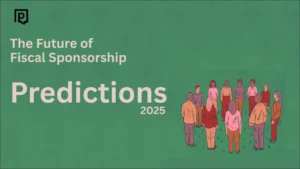Originally published by Philanthropy Northwest | August 29, 2024
We’ve all heard that a watched pot never boils, yet it seems that philanthropy has been staring at the same pot of water for decades now, hoping to achieve a different outcome.
Too often, funders hinder nonprofits from serving their communities effectively by slowing down progress, perpetuating inequities and creating obstacles to impact. At the heart of this dynamic is traditional philanthropy’s insistence on being the decision-maker in the equation; evaluating nonprofits based on top-down mandates rather than aligning funding priorities to community needs.
After 15 years of collaboration with Puget Sound and Bay Area nonprofits, Magic Cabinet has found that the best way to show up as a funder is by nurturing trusting relationships and resourcing nonprofits to realize their missions on their own terms.
Return on Relationship vs. Return on Investment
Historically, philanthropy has operated in a silo, designing community solutions without community voices at the table. The value of a philanthropic investment may differ from funder to funder, but the metrics for success are often based on predetermined outcomes and rarely informed by community insights.
In Magic Cabinet’s experience, impact happens at the intersection of agency and expertise. As funders, we are responsible for creating an environment where nonprofits can determine and define that impact. For us, this means sharing decision-making power, creating spaces for knowledge exchange and actively seeking feedback to strengthen our approach and partnerships.
Driven by a commitment to elevate community-led organizations, we saw an opportunity to expand our approach and collaborate with a well-known and respected organization to move funds even closer to grassroots solutions.
In 2023, we partnered with Seattle nonprofit and fiscal sponsor Rooted in Vibrant Communities (RVC) to co-develop a framework that shifted aspects of our engagement model to better meet the needs of their nonprofit partners. RVC’s thought partnership was vital to the success of launching our first fiscally-sponsored cohorts in the Puget Sound.

The launch of these cohorts marks a new era for Magic Cabinet as we expand toward more inclusive and responsive partnerships with intermediaries, moving funding deeper into under-resourced communities. Through our partnership with RVC, we leaned heavily into flexibility, transparency and trust, demonstrating how quickly philanthropy can and should adapt processes and parameters to resource organizations on the frontlines of change.
Creating a Culture of Learning
We see an opportunity for philanthropy to evolve beyond the transactional approaches of the past and embrace reciprocal relationships that prioritize true collaboration and partnership. At Magic Cabinet, we’re learning by doing, establishing two new pillars of our work to advance our mission and reshape philanthropy — philanthropic partnerships and advocacy. We invite you to explore our ongoing initiatives in these areas.
Collectively, we can uplift the agency of nonprofits, rebalance power and pave the way for deep and lasting change. Let’s work together to fill that pot (build relationships), give it some heat (community-led decision-making) and let it boil (trust).



